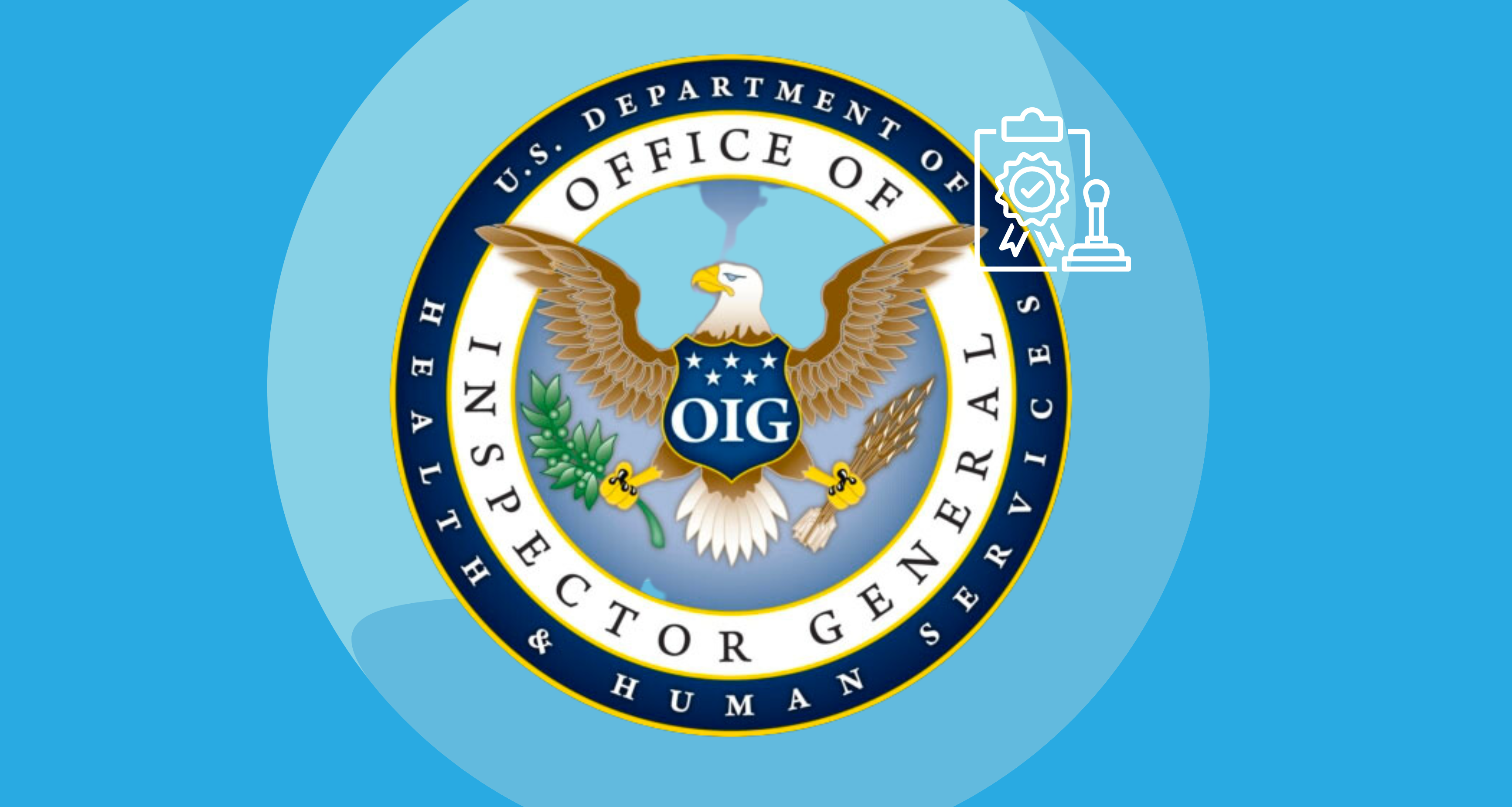The Office of Inspector General (OIG) plays a crucial role in ensuring the integrity of healthcare services. With its focus on preventing fraud, waste, and abuse (FWA) within the healthcare system, OIG healthcare compliance sets standards that every healthcare provider should be aware of.
With OIG’s mission to protect the health and welfare of patients, as well as the financial stability of government-funded healthcare initiatives, it operates as an independent entity within the Department of Health and Human Services (HHS). Let’s delve into how OIG ultimately safeguards the overall quality and accessibility of healthcare services for all.
OIG Exclusions List: Protecting the People
The OIG exclusions list contains individuals or entities prohibited from participating in federal healthcare programs due to their involvement in fraudulent activities. The OIG exclusions list serves several essential purposes.
1. Protects Integrity
The OIG exclusions list helps protect the integrity of federal healthcare programs by preventing individuals or entities with a history of fraud or abuse from participating. This ensures taxpayer dollars are not wasted on fraudulent claims or improper practices.
2. Acts as a Deterrent
The OIG exclusions list acts as a deterrent for potential wrongdoers in the healthcare industry, as they know they could face severe consequences if caught engaging in fraudulent activities.
3. Provides Transparency
The OIG exclusions list provides transparency to patients and other stakeholders, allowing them to make informed decisions about their healthcare providers and ensure they receive care from trustworthy professionals.
OIG Background Check: Having a Clean Record
The OIG background check ensures that individuals working within the healthcare industry, particularly those who receive federal funds or are involved in Medicare and Medicaid programs, have a clean record and are free from fraudulent activities or misconduct. To protect patients and maintain high standards of care, healthcare providers must perform regular OIG background checks on their employees and vendors. These checks verify whether an individual or entity appears on the OIG Exclusions List.
By conducting thorough OIG background checks, they can identify individuals with a history of fraud, abuse, or other criminal activities. This prevents them from participating in federal healthcare programs and potentially causing harm to patients or defrauding the government. The OIG background check also helps maintain public trust in the healthcare system by ensuring that only qualified individuals care for patients.
OIG Verification: Why it’s Important
So why is OIG verification so important? Well, let’s consider a scenario where a provider fails to conduct an OIG background check on one of its employees who happens to be on the OIG exclusions list. This employee could potentially defraud patients or engage in other illicit activities while working at the facility.
Such actions can lead to severe consequences for both patients and the provider, including:
- Legal Penalties
- Loss of Reputation
- Financial Repercussions
By conducting regular OIG verifications, healthcare providers demonstrate their commitment to maintaining ethical practices and protecting patient safety. Additionally, it helps them avoid potential liability issues that may arise from employing individuals or contracting with entities on the OIG exclusions list.
OIG Healthcare Compliance: How to Be Effective
An effective approach to achieving OIG healthcare compliance involves developing comprehensive policies and procedures tailored specifically for each organization.
These policies should outline guidelines for proper:
- Billing Practices
- Documentation Standards
- Compliance Training for Employees
Regular audits should be conducted to identify potential non-compliance areas, and corrective actions should be taken promptly.
It’s important to note that OIG healthcare compliance is not just about avoiding penalties; it goes hand in hand with providing quality care to patients. By adhering to OIG regulations, healthcare providers can enhance patient trust, improve overall efficiency, and ensure fair reimbursement for services rendered.
Overall, the Office of Inspector General plays a vital role in safeguarding the integrity of healthcare services. Providers can ensure that their employees and vendors are not engaged in suspicious activities through initiatives such as the OIG exclusions list and the OIG background checks. Compliance with OIG regulations demonstrates a commitment to delivering high-quality care while maintaining ethical standards. Ultimately, prioritizing OIG healthcare compliance benefits providers and patients by promoting transparency, preventing fraud, and preserving the integrity of healthcare services.








